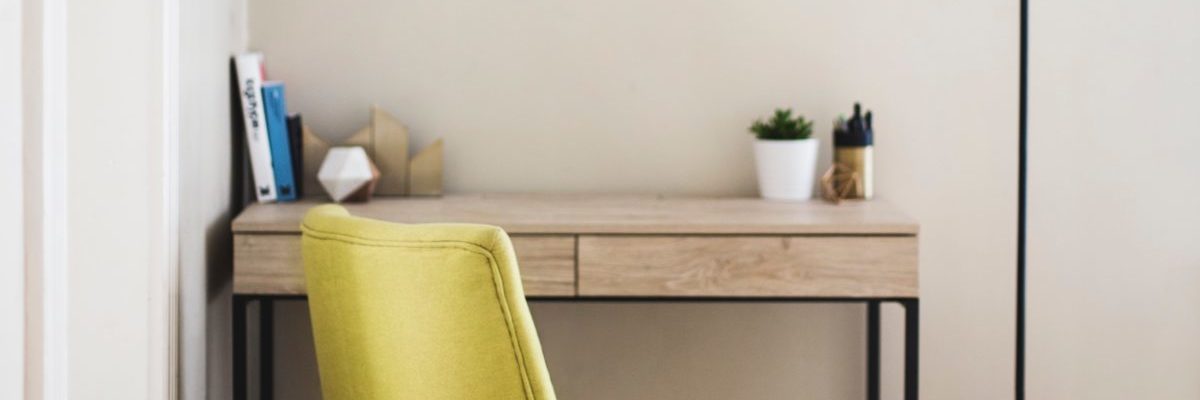Over at The Habit Book Club we’ve been discussing Stephen King’s On Writing: A Memoir of the Craft. In the more autobiographical first section of the book, before he gets to the writing advice, he discusses (among other things) his addictions and other counterproductive attitudes and behaviors. And he ends with this remarkable reflection on his writing desks:
The last thing I want to tell you in this part is about my desk. For years I dreamed of having the sort of massive oak slab that would dominate a room–no more child’s desk in a trailer laundry-closet, no more cramped kneehole in a rented house. In 1981 I got the one I wanted and placed it in the middle of a spacious, skylighted study… For six years I sat behind that desk either drunk or wrecked out of my mind, like a ship’s captain in charge of a voyage to nowhere.
A year or two after I sobered up, I got rid of that monstrosity and put in a living-room suite where it had been… In the early nineties, before they moved on to their own lives, my kids sometimes came up in the evening to watch a basketball game or a movie and eat pizza. They usually left a boxful of crusts behind when they moved on, but I didn’t care. They came, they seemed to enjoy being with me, and I know I enjoyed being with them. I got another desk–it’s handmade, beautiful, and half the size of the T. Rex desk. I put it at the far west end of the office, in a corner under the eave…I’m sitting under it now, a fifty-three-year-old man with bad eyes, a gimp leg, and no hangover. I’m doing what I know how to do, and as well as I know how to do it. I came through all the stuff I told you about (and plenty more that I didn’t), and now I’m going to tell you as much as I can about the job…
It starts with this: put your desk in the corner, and every time you sit down there to write, remind yourself why it isn’t in the middle of the room. Life isn’t a support-system for art. It’s the other way around.
My desk, as it happens, is right in the middle of things, but I take Stephen King’s point: if writing is the center around which one organizes a life, the writing will inevitably collapse on itself. Your writing has to be aboutsomething. It’s the rest of your life–the non-writing part–that gives you something to write about.
Maybe that’s stating the obvious, but I know a lot of writers who bemoan the fact that their lives are so busy that they can only find an hour or two (maybe less) each day to give to writing (and one little corner with barely enough room for a laptop, because the rest of life has exploded in every other square inch of the house). That’s not easy, I know. But as I’ve talked to other writers for The Habit Podcast, quite a few of them have spoken with fondness of those times when they only had an hour or two to write; that time constraint developed in them a discipline and a seriousness that they couldn’t learn any other way. Last week I was talking to a writer whose productivity actually went down when she was able to quit her job and write full-time. She had to go back to writing only a couple of hours in the morning and build up from there.
Her story reminded me of a song recorded by the White Stripes (but written by Eric Clapton, as I just learned):
Well you’re in your little room
And you’re working on something good.
But if it’s really good
You’re gonna need a bigger room.And when you’re in the bigger room,
You might not know what to do.
You might have to think of
How you got started sitting in your little room.
If what you’re looking for is an excuse for not writing, the busyness of your life is a good one. I should know: I use that one all the time. But having more time or a better desk probably isn’t going to help as much as you think if you’re not already using the hour or two you have at that little desk in the corner.
As Stephen King said, life isn’t a support system for art. It’s the other way around.








